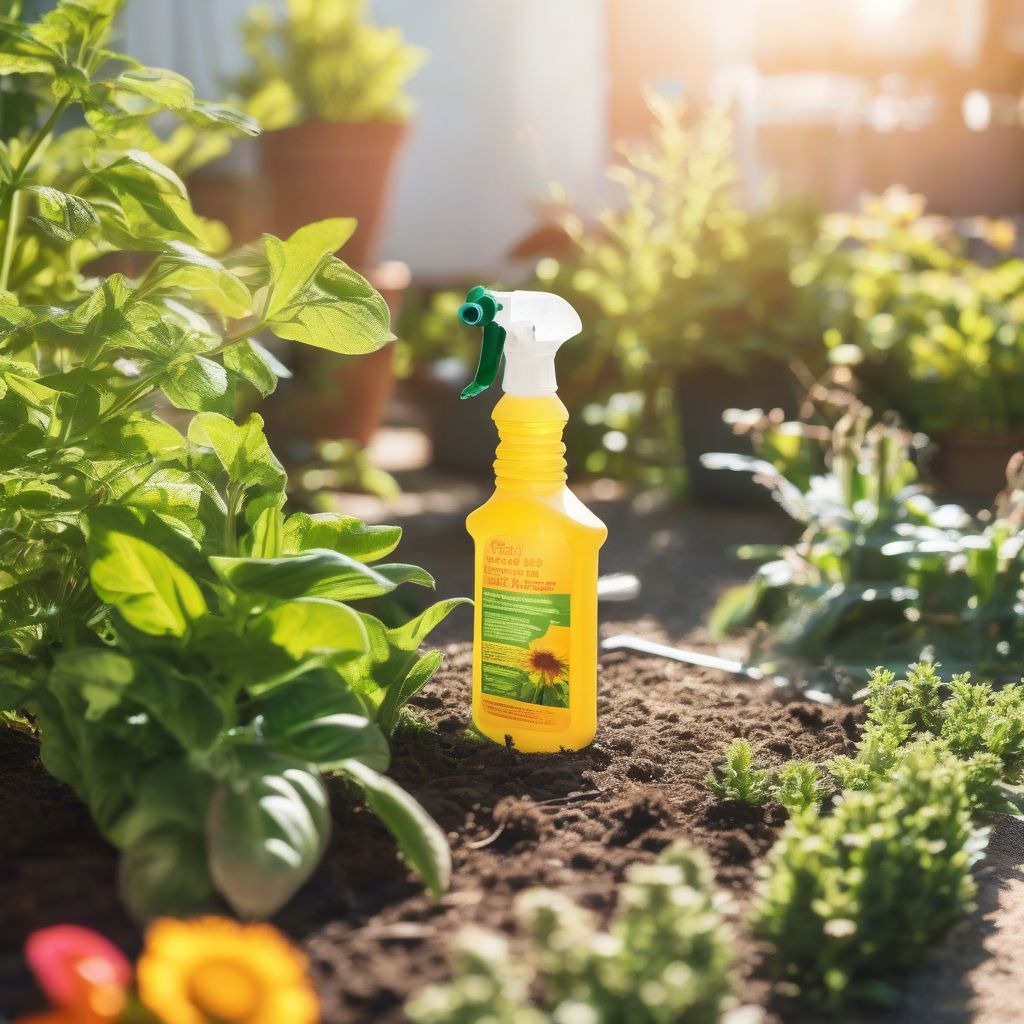Imagine stepping into your garden, a haven of vibrant blooms and lush greenery, only to discover rows of your prized vegetables nibbled to the core or your precious roses under siege by a battalion of bugs. It’s a gardener’s worst nightmare! But before you reach for the chemical pesticides, there’s good news: you can protect your plants and the environment with the best natural repellents for garden pests.
Why Choose Natural Pest Repellents?
Traditional pesticides often contain harsh chemicals that can harm beneficial insects, pollute the soil and water, and even pose risks to human health. As a nutrition and meal prep coach, I always emphasize the importance of natural solutions, and the same applies to gardening. Natural pest repellents offer a gentler approach, working in harmony with nature to deter pests without the harmful side effects.
Effective Natural Pest Repellents: Your Arsenal Against Invaders
Here’s the exciting part: nature provides a wealth of potent weapons in the fight against garden pests. Let’s explore some of the most effective natural repellents:
1. Neem Oil: The Multifaceted Wonder
Derived from the seeds of the neem tree, neem oil is a powerhouse in the organic gardening world. It contains azadirachtin, a compound that disrupts the life cycle of insects, preventing them from feeding and laying eggs.
How to Use It: Mix 1-2 tablespoons of neem oil with a gallon of water and spray on affected plants. Reapply every 7-14 days, especially after rainfall.
Target Pests: Aphids, whiteflies, spider mites, cabbage worms, and more.
2. Insecticidal Soap: A Gentle Touch with Powerful Results
Insecticidal soap works by penetrating the soft bodies of insects, causing dehydration and death. It’s a contact insecticide, so direct application to pests is crucial.
How to Use It: Follow the instructions on the product label, as concentrations vary. Spray thoroughly on affected plants, focusing on the undersides of leaves where pests often hide.
Target Pests: Aphids, whiteflies, mealybugs, and spider mites.
3. Diatomaceous Earth: The Sharp Solution
Don’t let the name fool you; diatomaceous earth (DE) is a natural, powdery substance made from fossilized algae. It works mechanically, damaging the exoskeletons of insects and causing dehydration.
How to Use It: Sprinkle a thin layer of DE around the base of plants or dust it lightly on leaves. Reapply after rainfall or irrigation.
Target Pests: Slugs, snails, ants, earwigs, and crawling insects.
4. Garlic Spray: A Pungent Pest Deterrent
Garlic isn’t just for warding off vampires; it’s also highly effective at repelling a wide range of garden pests. The strong odor disrupts their feeding and mating habits.
How to Use It: Blend several cloves of garlic with water and strain the mixture. Dilute it further and spray on plants.
Target Pests: Aphids, whiteflies, spider mites, cabbage loopers, and more.
5. Companion Planting: Nature’s Strategic Alliance
Companion planting is the art of strategically planting different species together to deter pests, attract beneficial insects, and enhance growth.
How to Use It: Research companion plants for your specific crops. For instance, planting basil alongside tomatoes repels tomato hornworms, while marigolds deter aphids and nematodes.
6. Physical Barriers: Keeping Pests at Bay
Sometimes, the simplest solutions are the most effective. Physical barriers create a protective shield around your plants, preventing pests from reaching them.
Examples:
- Row covers: Lightweight fabric covers that protect young seedlings from insects and birds.
- Copper tape: A sticky tape that deters slugs and snails from crossing.
- Netting: Used to protect fruit trees and berry bushes from birds and larger pests.
Pro Tips for Maximum Effectiveness
- Identify your pests: Knowing your enemy is half the battle. Proper identification helps you choose the most targeted and effective repellents.
- Timing is key: Apply repellents early in the growing season or at the first sign of infestation to prevent populations from exploding.
- Rotate your repellents: Switching between different repellents can prevent pests from developing resistance.
- Attract beneficial insects: Ladybugs, lacewings, and praying mantises are natural predators that help control pest populations. Attract them by planting flowering herbs and providing water sources.
- Practice good garden hygiene: Remove plant debris and weeds regularly, as they can harbor pests and diseases.
 Natural Pest Repellents for Garden
Natural Pest Repellents for Garden
[amazon bestseller=”natural pest repellents for garden”]
The Rewards of Going Natural
By embracing natural pest repellents, you’re not only protecting your garden, but also your health, the environment, and beneficial wildlife. It’s a win-win situation that aligns perfectly with a holistic and sustainable lifestyle. So, ditch the chemicals, roll up your sleeves, and experience the joy of gardening in harmony with nature.
